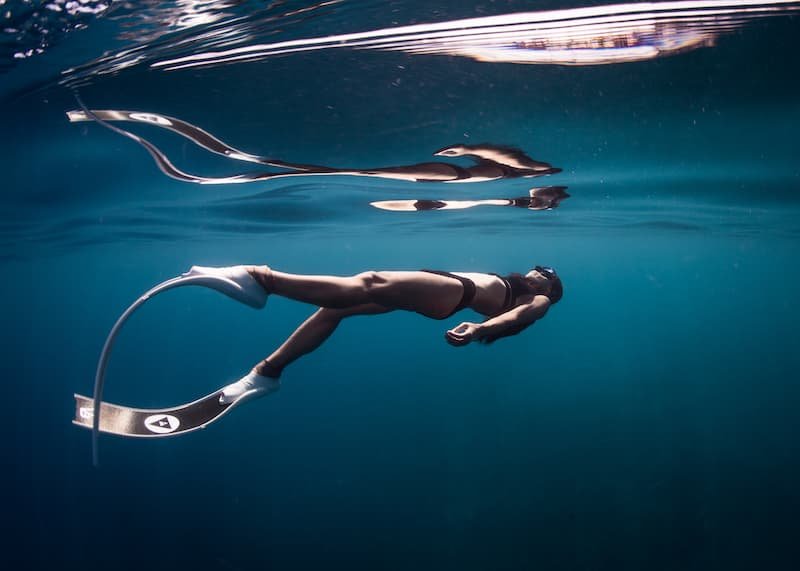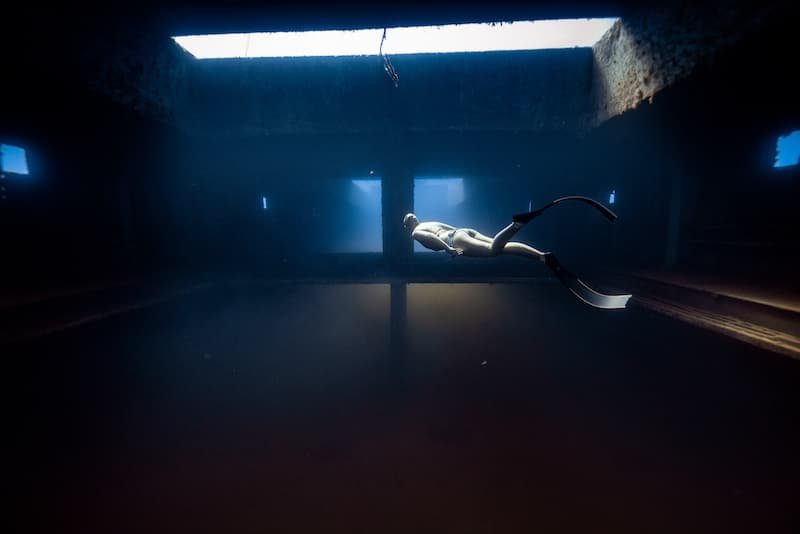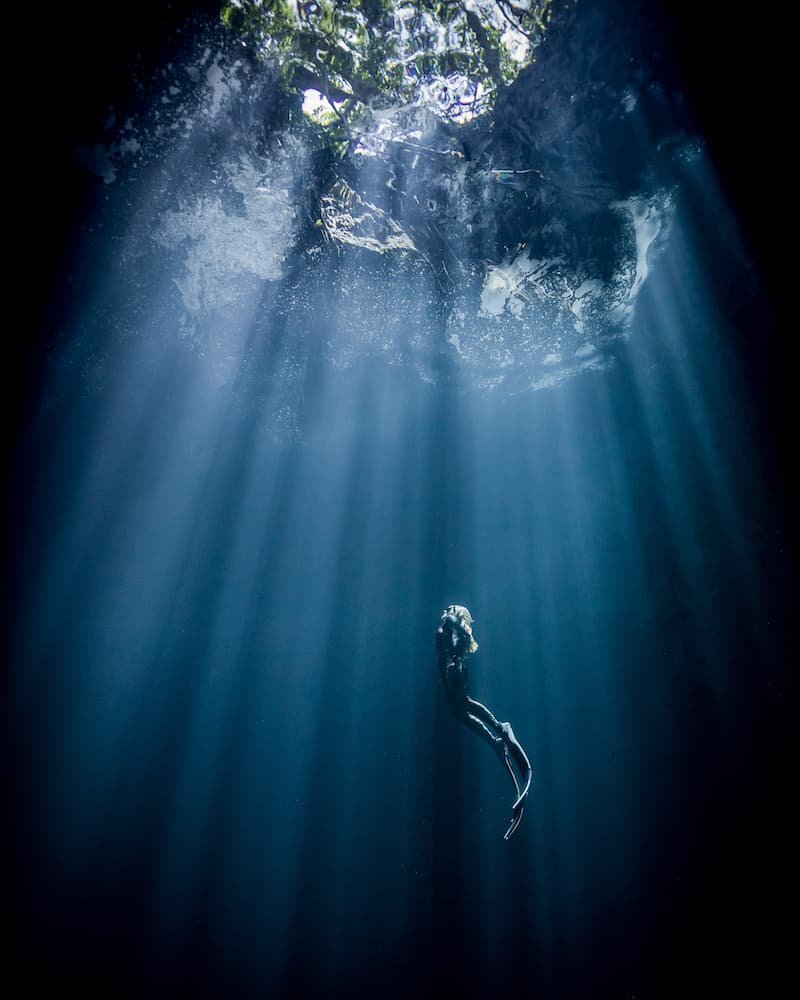
 Roni Essex
Freediver, Spearo, Creator
Roni Essex
Freediver, Spearo, Creator

 Roni Essex
Freediver, Spearo, Creator
Roni Essex
Freediver, Spearo, Creator
Freediving is a physically and mentally demanding sport that requires a high level of discipline and control. It involves holding one's breath and descending to great depths in pursuit of a deeper connection with the ocean and its inhabitants. One of the greatest challenges of freediving is dealing with the pain that can arise during a dive. In this article, we will explore the connection between pain and freediving and how the latter can help us overcome the former.
Freediving is not without its challenges. In addition to the risk of a blackout, divers must also be prepared to deal with the pain that can come from the pressure exerted on the body by the water, the cold temperature of the water, and the strain placed on the muscles and joints during the dive. For some divers, the pain can be intense and overwhelming, leading to a feeling of panic and a desire to surface immediately.

One of the most important ways in which freedivers can learn to overcome pain is through mental preparation and visualization. By visualizing a successful dive, including the sensations of pressure and pain, a diver can prepare themselves for what they will experience during the actual dive. This mental preparation can help reduce the feeling of panic and allow the diver to focus on their technique and their breath-holding.
Breath-holding exercises are another technique that can be used to overcome pain during freediving. These exercises help to build the diver's lung capacity and increase their ability to hold their breath for longer periods of time. This increased capacity can help the diver to stay calm and focused during the dive, even as the pain begins to mount.

Physical preparation is also important in overcoming pain during freediving. A regular exercise regimen can help to strengthen the muscles and joints, making them more resilient to the strain of a deep dive. Proper hydration and nutrition are also important, as they help to ensure that the body is well-prepared for the demands of a dive.
Perhaps the most important factor in overcoming pain during freediving is the development of mental resilience. This involves the ability to stay focused and present during a dive, even as the pain begins to mount. It also involves the ability to remain calm and centered in the face of fear and uncertainty. This mental resilience can be developed through regular meditation and mindfulness practices, which can help to train the mind to stay calm and focused in even the most challenging circumstances.

The benefits of overcoming pain through freediving are many. For one, it can help to build mental and physical resilience, which can be applied to other areas of life as well. It can also help to build a deeper connection with the ocean and its inhabitants, as well as with oneself. For many freedivers, the experience of pushing past their limits and overcoming pain is incredibly empowering and transformative.
It is important to note that freediving is not without its risks. Divers should always receive proper training and should never dive alone. They should also be aware of the dangers associated with diving at great depths, including decompression sickness and blackout.

In conclusion, the sport of freediving presents a unique opportunity to confront pain and build resilience in both mind and body. Through mental preparation, breath-holding exercises, physical training, and the development of mental fortitude, freedivers can learn to push past their limits and unlock a deeper connection with the ocean and themselves. However, it's important to note that proper training and safety considerations should always be followed to ensure the safety of the diver. By embracing the transformative experience of freediving, we can learn to overcome pain, build resilience, and discover a new level of connection with the world around us.